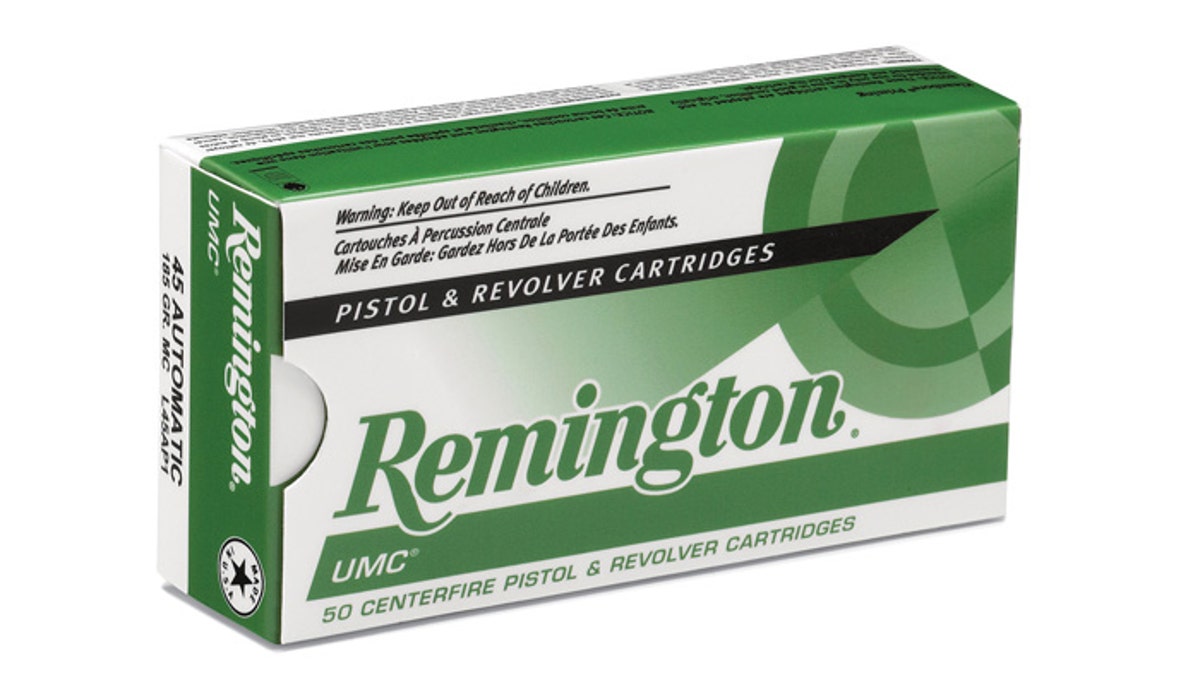
In March, an executive at Remington, Stephen Jackson, Jr., wrote to New York Gov. Andrew Cuomo warning that the enactment of microstamping legislation could force the company to “reconsider its commitment to the New York market altogether rather than spend the astronomical sums of money” necessary to reconfigure its manufacturing and assembly processes.
Two venerable American gun manufacturers — Remington and Colt — could head for the West their weapons helped win if New York and Connecticut force them to implement microstamping technology.
Microstamping, or ballistic imprinting, is a patented process that uses laser technology to engrave a tiny marking of the make, model and serial number on the tip of a gun’s firing pin to allow an imprint of that information on spent cartridge cases. Supporters of the technology say it will be a “game changer,” allowing authorities to quickly identify the registered guns used in crimes. Opponents claim the process is costly, unreliable and may ultimately impact the local economies that heavily depend on the gun industry, including Ilion, N.Y., where Remington Arms maintains a factory, and Hartford, Conn., where Colt's manufacturing is headquartered.
“Mandatory microstamping would have an immediate impact of a loss of 50 jobs,” New York State Sen. James Seward, a Republican whose district includes Ilion, said, adding that Remington employs 1,100 workers in the town. “You’re talking about a company that has options in other states. Why should they be in a state that’s hostile to legal gun manufacturing? There could be serious negative economic impact with the passage of microstamping and other gun-control laws.”
[pullquote]
In March, prior to the recent mass shootings at a movie theater in Aurora, Colo., a Sikh temple in Wisconsin and at New York’s iconic Empire State Building, Remington executive Stephen Jackson wrote to New York Gov. Andrew Cuomo warning forced microstamping could prompt the company to “reconsider its commitment to the New York market altogether rather than spend the astronomical sums of money” necessary to reconfigure its manufacturing and assembly processes.
Ilion Mayor John Stephens told FoxNews.com he believes the company, which has had suitors in several Midwest states with less restrictive gun laws, was not bluffing. Stephens also said the microstamping proposal is bad legislation.
“I don’t think it would help anything," Stephens said. "It would probably be more of a hindrance than anything else. A criminal is going to obtain a weapon if they want to obtain a weapon. This is a downstate ploy, it’s downstate politics.”
The closure of Remington’s plant in the 8,000-resident village would be a “huge hit” to the local economy, Stephens said, and suggested that New York Mayor Michael Bloomberg — and other politicians supporting stricter gun-control measures — are off the mark.
Meanwhile, in Connecticut, similar microstamping legislation has long been opposed by Colt, whose executives have claimed the “feel-good legislation” would drive gun manufacturers out of the state.
Erich Pratt, spokesman for Gun Owners of America, said companies -- and indeed industries -- leave when they believe the business climate is hostile. He cited the car industry.
“It used to be Detroit and only Detroit, but now they’re opening up shops all along the South,” Pratt told FoxNews.com. “If they’re not going to be pro-business, then they’re going to lose those jobs. They’re making a bottom line decision: At what point does it become more cost-effective to leave the state?”
New York Assemblywoman Michelle Schimel, a Democrat and the chief sponsor of the microstamping legislation on semiautomatic pistols that was last considered by the state’s full Senate in 2010, said she believes Remington’s vow is merely a threat.
“Their main product isn’t even semiautomatic guns; the main thrust of what they do are long guns and military contracts,” Schimel told FoxNews.com. “As a former businessman, it would be foolish for them to leave the New York market. They are getting a lot of money from the state.”
Implementation of microstamping technology would cost roughly $12 per gun and would go a long way to helping solve crimes, she said.
“That’s the new threat: to move where that [gun] friendly state is,” she said. “It’s unfair of them to resist sensible regulation to save lives. It does not impact lawful gun ownership at all.”












































